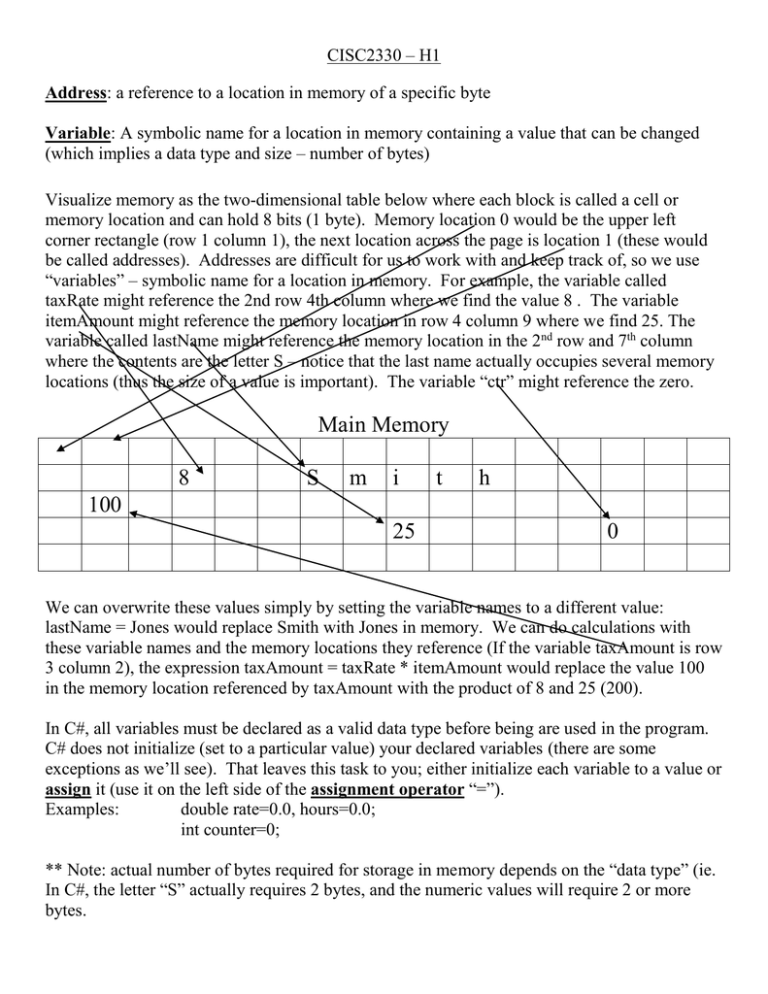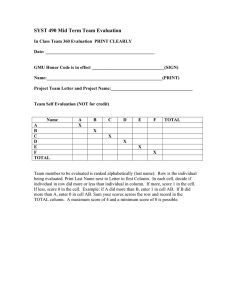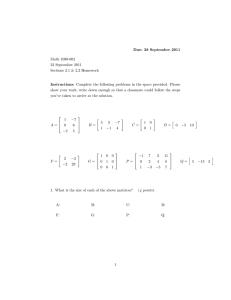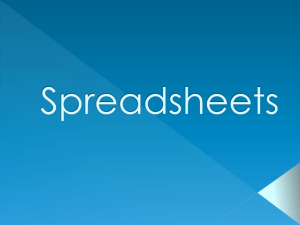Document 16615613
advertisement

CISC2330 – H1 Address: a reference to a location in memory of a specific byte Variable: A symbolic name for a location in memory containing a value that can be changed (which implies a data type and size – number of bytes) Visualize memory as the two-dimensional table below where each block is called a cell or memory location and can hold 8 bits (1 byte). Memory location 0 would be the upper left corner rectangle (row 1 column 1), the next location across the page is location 1 (these would be called addresses). Addresses are difficult for us to work with and keep track of, so we use “variables” – symbolic name for a location in memory. For example, the variable called taxRate might reference the 2nd row 4th column where we find the value 8 . The variable itemAmount might reference the memory location in row 4 column 9 where we find 25. The variable called lastName might reference the memory location in the 2nd row and 7th column where the contents are the letter S – notice that the last name actually occupies several memory locations (thus the size of a value is important). The variable “ctr” might reference the zero. Main Memory 8 S m i t h 100 25 0 We can overwrite these values simply by setting the variable names to a different value: lastName = Jones would replace Smith with Jones in memory. We can do calculations with these variable names and the memory locations they reference (If the variable taxAmount is row 3 column 2), the expression taxAmount = taxRate * itemAmount would replace the value 100 in the memory location referenced by taxAmount with the product of 8 and 25 (200). In C#, all variables must be declared as a valid data type before being are used in the program. C# does not initialize (set to a particular value) your declared variables (there are some exceptions as we’ll see). That leaves this task to you; either initialize each variable to a value or assign it (use it on the left side of the assignment operator “=”). Examples: double rate=0.0, hours=0.0; int counter=0; ** Note: actual number of bytes required for storage in memory depends on the “data type” (ie. In C#, the letter “S” actually requires 2 bytes, and the numeric values will require 2 or more bytes.




